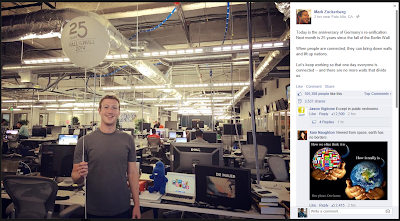In the ideal world, you should be able to go to any merchant and use any form of payment - cash, check, credit card, debit card, Apple Pay, Google Wallet, yuan, whatever.
We do not live in an ideal world, as some are discovering. Take Julio Ojeda-Zapata, who went to a CVS pharmacy and tried to pay with Google Wallet. He posted a picture of a terminal stating that another form of payment is required.
While Google Wallet is affected by CVS' move, the real news is brewing for the users of the just-released Apple Pay - and it seems that it was Apple Pay that prompted the recent payment denials.
Earlier this week, Rite Aid took steps to shut down support for Apple and Google’s digital wallets. While the pharmacy chain was not an official Apple Pay partner, consumers were able to use the payment system with existing NFC payment terminals until a short while ago. But now, CVS is following suit.
CVS sent an email to its stores saying that NFC support is supposed to be turned off and that the company will not accept Apple Pay. The email went on to say that cashiers should be instructed to apologize to the customer, explain that CVS does not accept Apple Pay, and then inform the customer that it will have its own mobile wallet next year. Through Twitter, and various media outlets, consumers are confirming that NFC support has been turned off at CVS stores today.
Why? Because CVS and Rite Aid, along with several other retailers, are members of the Merchant Customer Exchange - and they are rolling out their own mobile payment system, CurrentC. Why? Because their system cuts out the middlemen (banks and credit card companies) and gets money directly from the consumers' bank accounts.
There's only one problem. If you go to a Rite Aid or a CVS and try to pay with CurrentC, you can't use that either. Not until 2015.
Which gives the enemies of CurrentC plenty of time to gather their ammunition. TechCrunch isn't sold on the technology, as noted below. (It's appropriate to note that John Gruber really really likes Apple, but that doesn't negate his basic premise.)
The problem with the CurrentC system, as John Gruber points out, is that it’s based more around solving the retailers’ credit card fee problems than the consumers’ payment friction problems. Users have to open their phone, open CurrentC, open the scanner, scan the code from the cashier, and wait for the transaction to be confirmed. That may present more friction than simply paying with a credit card, and it’s certainly harder than a quick Touch ID verification and tap of Apple Pay.
Of course, CurrentC does have some advantages, including the fact that the technology doesn't require the latest and greatest phones to work. However, the fact remains that Google Wallet and Apple Pay will be available during the holiday shopping season, while CurrentC won't. That probably won't have a big financial impact on the retailers that won't accept any mobile payments, and the hubbub may be confined to the tech-weenie circles.
But when you're talking about something that you want early adopters to champion, it may be hard to find early adopter champions for CurrentC.
The evolution will not be televised - Bryan Adams and AllMusic
-
If you poke around on the Internet, you can find this odd FAQ:
*Why can't I find Bryan Adams on AllMusic? Due to the request of Mr. Adams,
we are no long...
6 years ago










